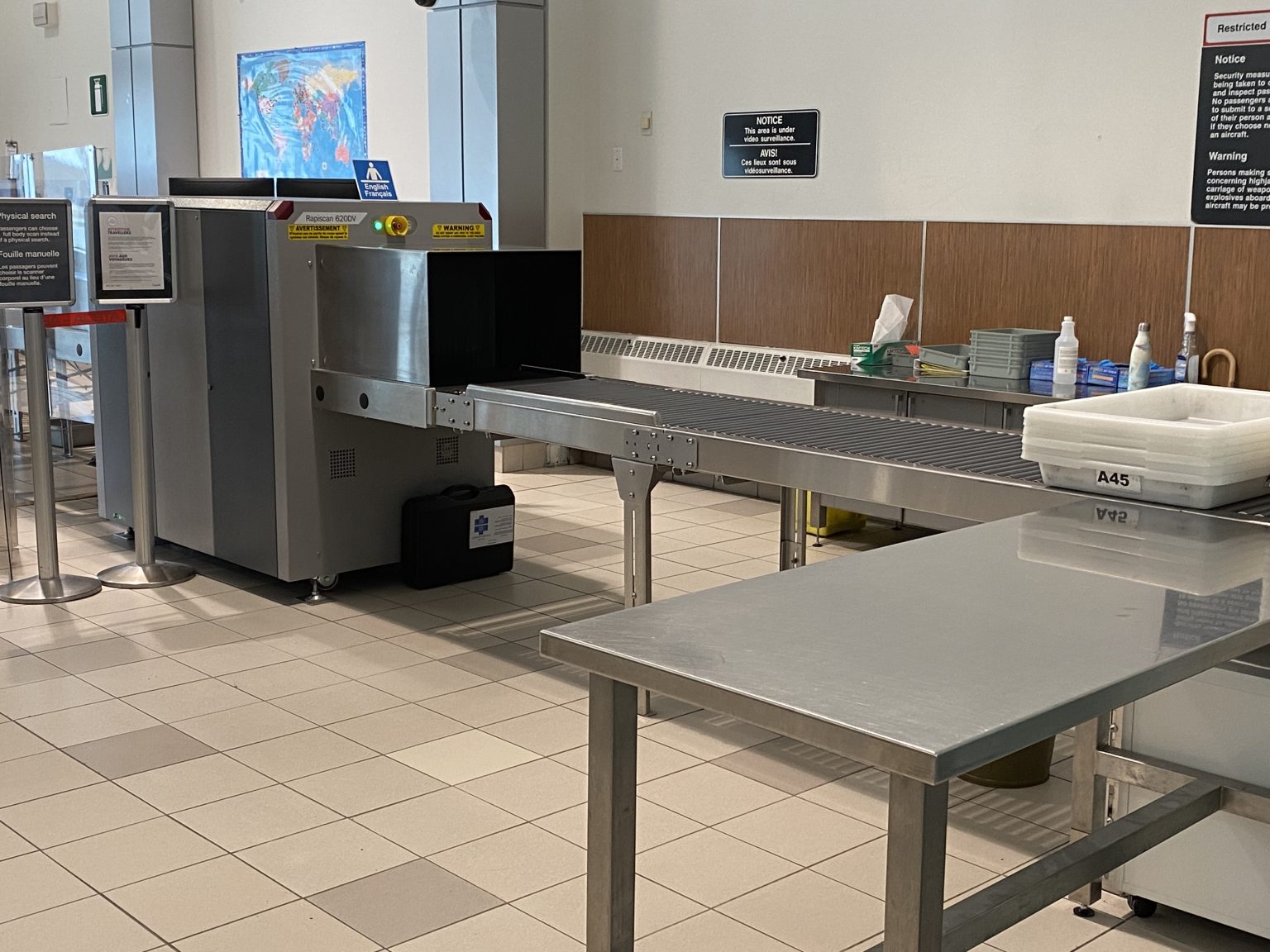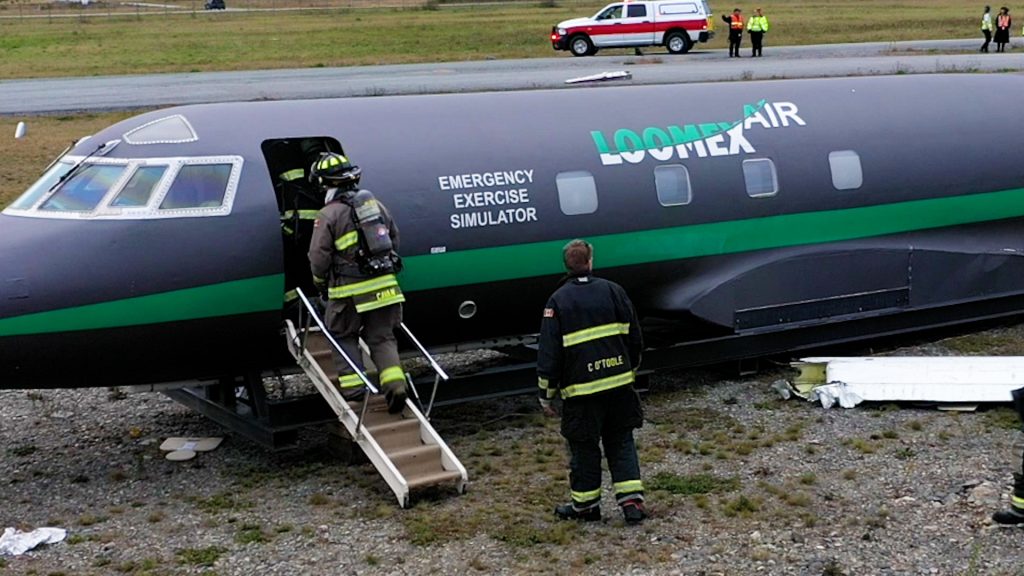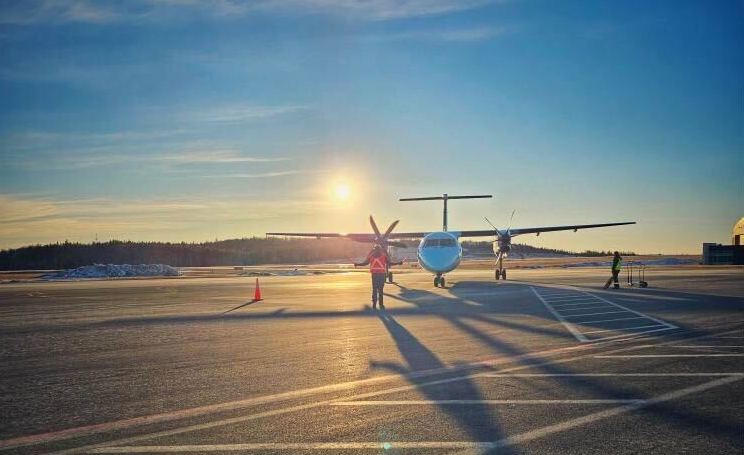Saint John Airport is committed to excellence in safety, security, and environmental management. Our primary objective is to build, operate and maintain a safe, secure, and environmentally sustainable airport for our employees, stakeholders, and customers.
We currently have safety, security, and environmental policies to serve as a reminder to each airport authority employee that we are all individually responsible to report hazards and to always look for ways to improve our programs and processes.
- Meet all applicable safety, security, and environmental laws and regulations;
- Train and educate our employees and allocate sufficient resources in support of safety, security, and environmental excellence;
- Set specific measurable goals for safety, security, and environmental performance and regularly report on these results; and
- Promote a culture whereby employees and stakeholders can:
- Voluntarily self-report any acts, deficiencies, hazards, incidents, or occurrences that threaten safety, security, or the environment; and
- Actively collaboratively identify, seek out, report, analyze, and rectify hazards in order to prevent or mitigate reoccurrence and maintain a safe, secure, and environmentally sustainable airport.

Wildlife Management
We have a responsibility to ensure safe aircraft operations while conserving wildlife. The YSJ wildlife team patrols the airfield year-round, using lethal and non-lethal methods (pyrotechnics, sirens, and trapping) to scare and disperse hazardous wildlife. It uses proactive tools such as a bird deterrent kite and incorporates game cameras to help identify wildlife sightings in wooded areas. These methods increase wildlife management effectiveness and reduce bird strikes.
Water
Saint John Airport continuously monitors the quality of potable water, wastewater and storm water at its airport through sampling conducted by our certified water and waste water operators and analysis provided by an accredited outside laboratory.
More than 200 analyses are carried out annually on water samples collected at various outlets of the airport.
In our glycol management plan, we set clear targets for reducing impacts to water quality. This includes a target that strives for zero water samples with glycol concentration above the Canadian glycol guideline level of 100 mg/L.
Training
Every year we invest in thousands of hours of safety related training for our employees in the following areas:
Safety Management System
Security Management System
Barrier Free Training
Wildlife training
Occupational Health & Safety

Health & Safety
Our joint Occupational Health and Safety Committee is comprised equally of management and bargaining unit employees. The committee reviews policies, programs and safe work practices on an annual basis ensuring all applicable regulations, standards, guidelines and best practices are incorporated. Employment and Social Development Canada (ESDC) visits the airport annually; our goal is zero findings of unsafe work practices.
Lost-Time Injuries
We measure health and safety performance by tracking any at-work injuries that result in an employee missing work. Our goal is the have zero at-work injuries.
Greenhouse Gas Reduction Commitment Policy
The Saint John Airport Inc. (SJAI) is committed in helping the local and global environment by reducing greenhouse gases (GHG) being released into the atmosphere. Reducing GHGs (i.e. carbon emissions) will be managed through the Airport Carbon Accreditation (ACA) program, which promotes environmental efficiency and carbon reduction within airports across the world.
Please review our Greenhouse Gas policy here.

Canadian Aviation Safety Week
Saint John Airport is a proud participant in the annual Canadian Airports Safety Week (CASW). CASW is an airport-led initiative with 29 participating airports across Canada and includes a range of activities to promote healthy and safe work practices among airport employees.
Emergency Response Procedures - Tabletops and Live Exercises
Safety and security is our main priority and it is critical that we are prepared should a real emergency occur. Every year we conduct small- to medium-scale exercises developed to assess the airport’s Emergency Plan and our ability to quickly coordinate with external emergency response teams. We conduct tabletop exercises in Security, Safety, and Environmental every year. We conduct a full-scale Security Live Exercise every 2 years, and a full-scale Safety Live Exercise every 4 years. The exercises provide valuable emergency response training and allows YSJ and our first responding agencies to test interoperability. All exercises highlight procedures that are working well, as well as areas that require improvement.